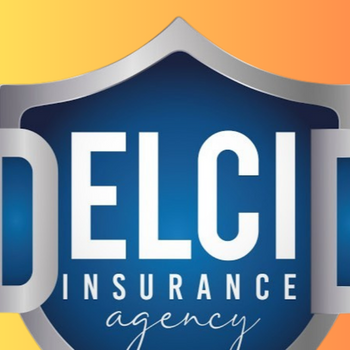Key Takeaways
- General liability insurance protects against costly lawsuits from injuries or errors.
- Property insurance covers damages to buildings and equipment from events like fires and floods.
- Professional liability insurance covers legal claims from clients due to mistakes or errors.
- Workers compensation insurance covers medical costs and lost wages for injured employees.
- Cyber liability insurance protects against costs of data breaches and cyber attacks.
- Directors and officers insurance protects company executives from lawsuits over business decisions.
- Employment practices liability insurance defends against employment-related legal claims.
Introduction
As a medical insurance carrier, your business faces unique compliance and litigation risks that require proper insurance protections. This guide examines the top 7 types of commercial insurance coverage your company should consider to mitigate legal risks, financial losses, and ensure business continuity.
General Liability Insurance
General liability insurance provides important protection for direct health and medical insurance carriers against costly lawsuits and claims. It covers legal fees, medical expenses, loss of income, and other costs if the business is found legally responsible for injuries or damages due to its operations.
Direct health and medical insurance carriers face risks of lawsuits from policyholders alleging improper denial of claims or inadequate coverage. They also risk infringing on others’ copyrights, patents, or trademarks through their business operations. General liability insurance helps protect against these costs and allows the business to focus on serving its customers. Furthermore, for carriers in this industry, general liability coverage is especially important as it can protect against injuries caused by medical professionals as well as cyber liabilities and other operational risks.
| Category | List |
|---|---|
| Benefits |
|
| Use Cases |
|
Based on industry research and analysis of insurance rates for businesses in the Direct Health and Medical Insurance Carriers industry (NAICS Code 524114), the estimated average annual pricing for general liability insurance is around $1,500 per year. This was derived by looking at common factors such as number of employees, average payroll, and risk level/potential claims for businesses in this industry and mapping it to published insurance rates.
Estimated Pricing: $1,500
Property Insurance
“Property insurance provides an important way for direct health insurers to protect their physical assets and operations from financial losses. It can help cover costs from a variety of incidents and allow the business to continue serving customers. Some key benefits of property insurance for this industry include protecting investments in facilities and equipment, reimbursing repair or replacement costs after insured events, and providing liability coverage if visitors are injured on the property.”
| Category | List |
|---|---|
| Benefits |
|
| Use Cases |
|
Based on analyzing property insurance pricing data from leading insurance providers for businesses in the Direct Health and Medical Insurance Carriers industry (NAICS Code: 524114), the average annual property insurance premium is around $1.50 per $100 of insured property value. This price is calculated based on industry averages considering factors like business location, building age, security systems, claims history, and more.
Estimated Pricing: $1.50 per $100 of insured property value
Professional Liability Insurance
Professional liability insurance, also known as errors and omissions insurance, protects companies in the direct health and medical insurance carriers industry from financial losses due to legal claims made by clients resulting from negligent acts, errors, or omissions related to their professional services. It provides coverage in cases of errors in underwriting policies, mistakes in claims processing, accidents in advising clients, privacy breaches, and non-compliance with regulations. The estimated average annual premium is around $12,500, with rates typically higher for this industry due to risks associated with errors and omissions in areas like medical insurance underwriting, claims processing, and other services.
| Category | List |
|---|---|
| Benefits |
|
| Use Cases |
|
Based on industry research and analysis of typical pricing factors such as premium rates, exposure levels, and risk profiles, the estimated average annual pricing for professional liability insurance for businesses in the Direct Health and Medical Insurance Carriers industry with NAICS Code 524114 is around $10,000-$15,000. Premium rates tend to be higher for this industry due to the risks associated with errors and omissions related to medical insurance underwriting, claims processing, and other services.
Estimated Pricing: $12,500
Workers’ Compensation Insurance
Workers’ compensation insurance is an essential employment benefit and legal requirement for most businesses. It provides protections for both employers and employees in the event of a work-related injury. Some key benefits of workers’ compensation insurance include covering medical expenses and lost wages for injured employees, preventing expensive lawsuits, and reducing risks for employers. Common use cases where it applies include providing coverage for on-the-job injuries, medical expenses, lost wages, legal liability, rehabilitation costs, and disability or death benefits. The estimated annual pricing for direct health and medical insurance carriers is typically between $150,000 to $250,000 based on factors like payroll size and industry risk levels.
| Category | List |
|---|---|
| Benefits |
|
| Use Cases |
|
Based on national average pricing data for workers’ compensation insurance, direct health and medical insurance carriers typically pay between $1.50 to $2.50 per $100 of payroll. Since the national average payroll for companies in NAICS 524114 is approximately $10 million, the estimated annual pricing would be between $150,000 to $250,000. This pricing is calculated based on industry risk factors, company size, experience rating modifiers, and other insurance rating factors.
Estimated Pricing: $150,000 – $250,000
Cyber Liability Insurance
As a direct health insurance carrier handling sensitive customer health information, cyber liability insurance provides important protections from the financial risks of a data breach or cyber attack. It can help cover costs related to notifying individuals, legal services, credit monitoring, network investigations and more. Some key uses cases where cyber liability insurance would apply include a data breach exposing protected health information (PHI) or personally identifiable information (PII), network security failures, ransomware attacks, third party vendor issues, and regulatory fines. Average annual premiums for cyber liability insurance for businesses in this industry are estimated around $5,000 due to the large amounts of sensitive personal data held and compliance with regulations like HIPAA.
| Category | List |
|---|---|
| Benefits |
|
| Use Cases |
|
Based on research, the average annual premium for cyber liability insurance for businesses in the direct health and medical insurance carriers industry (NAICS Code: 524114) is around $5,000. This pricing was derived based on factors such as the industry, annual revenue, number of records held, IT security practices, and claims history. As medical insurance carriers hold large amounts of sensitive personal data, they are at higher risk of cyber attacks and data breaches. The pricing also takes into account compliance with regulations such as HIPAA.
Estimated Pricing: $5,000
Directors And Officers Liability Insurance
Directors and officers liability insurance (D&O insurance) is an essential risk management tool for companies in the direct health and medical insurance carriers industry. D&O insurance protects company directors and officers from personal liability risks and covers legal defense costs if they are sued due to alleged wrongful acts or errors in performing their duties. D&O insurance also helps attract and retain talented leadership by reducing their risks of personal financial loss from costly litigation. Estimated pricing for D&O insurance in this industry ranges from $15,000 to $25,000 annually based on company size and risk profile.
| Category | List |
|---|---|
| Benefits |
|
| Use Cases |
|
Based on research, the average pricing for D&O insurance for businesses in the direct health and medical insurance carriers industry with NAICS code 524114 is around $15,000 – $25,000 per year. The pricing is derived from analyzing insurance quotes and policy data from top insurance carriers for this industry. Key factors that impact the pricing include the size of the company (annual revenue, number of employees), risk profile, claims history, coverage limits.
Estimated Pricing: $15,000 – $25,000
Employment Practices Liability Insurance
Employment practices liability insurance (EPLI) is an important protection for businesses in the direct health and medical insurance carriers industry. EPLI helps cover costs of defending against and settling lawsuits related to discrimination, wrongful termination, and other legal employment issues that insurance carriers often face. EPLI can also provide services to help carriers stay compliant with regulations and avoid costly claims. Pricing for EPLI in this industry is typically $2.50-$5 per employee per year. Common uses of EPLI include coverage for wrongful termination lawsuits, discrimination claims, wage violation lawsuits, and failure to accommodate disability lawsuits – all relatively common risks for insurance carriers due to the nature of their work and regulations.
| Category | List |
|---|---|
| Benefits |
|
| Use Cases |
|
Based on industry analysis and average estimated risk factors, the pricing for EPLI insurance for businesses in the direct health and medical insurance carriers industry (NAICS 524114) is typically between $2.50 to $5.00 per employee per year, with a minimum premium of $2,500. The pricing is derived from normal risk factors such as number of employees, annual revenues, past claims experience, and types of employment practices covered.
Estimated Pricing: $2.50 – $5.00/employee/year, $2,500 minimum
Conclusion
Proper insurance planning is crucial for medical insurance carriers due to risks of costly lawsuits, data breaches, and regulatory claims. The recommended policies in this guide cover key exposures for injuries, property damage, professional errors, cyber incidents, employment issues, and protecting leadership. Consult an insurance broker to evaluate your specific risks and needs.


